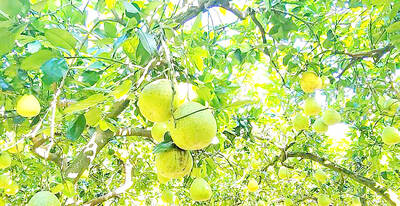Around-the-clock care is needed to sustain the nation’s only liger, blighted by genetic deformities as a living reminder of the tragedy that can result from human greed.
A-piao (阿彪) staggers about his enormous enclosure, his faint tiger stripes glistening in the slanted winter sun before he flops to the ground.
Lazily turning to show onlookers his exposed belly, he exudes the same ease as his distant domesticated cousins, yet something is clearly unusual about this feline.

Photo: Chen Yen-ting, Taipei Times
His left hind leg, rigid and immobile, extends from his side like a crutch as he gazes forward with the face of a lion. Yet this lion has no mane, his exposed ears rounded like a tiger’s, and his crooked tail bearing its telltale stripes.
A-piao is a liger, one of three bred illegally 12 years ago by a private leisure farm in Tainan.
Cross breeding a lion and a tiger only spells trouble for their offspring, which are usually plagued by genetic defects.
One of A-piao’s littermates died at birth, while two others were sent to the Pingtung Rescue Center at the National Pingtung University of Science and Technology.
One of those only survived for another week, leaving A-piao as the only one of his kind remaining in Taiwan.
He has managed to survive into adulthood and on Aug. 15 turns 12 years old, longer than the decade his handlers expected.
However, the genetic deficiencies caused by mating different species has resulted in a suite of problems for A-piao.
His spine is bent, rendering his left hind leg immobile. Given that the gene regulating body size cannot be passed on by a male lion or a female tiger, his keepers must carefully control his diet to prevent unchecked weight gain.
Lo Yi-chen (羅亦辰), who is in charge of A-piao’s diet, said that the liger loves mealtime, especially when chicken is on the menu.
To control his weight and ease the strain on his joints, the center feeds A-piao one 3.2kg meal each day, along with occasional 600g snacks, Lo said.
A-piao is about 140kg and 1.9m long — light for a liger, but good for A-piao’s ailing joints.
Lo is also providing “targeted training” to desensitize A-piao to treatment, as applying anesthesia at his advanced age could be dangerous.
Lions and tigers live to about 20, but ligers typically do not make it to that age, veterinarian Tuan Yun-chieh (段雲傑) said, adding that controlling A-piao’s weight is not only aimed at making him more comfortable, but also easing his passage into his twilight years.
As the world’s largest feline, ligers are popular additions to zoos and private collections, but A-piao is proof of the consequences of unnatural cross breeding, Tuan said, adding that hopefully this liger’s life serves as a lesson to those who would meddle with nature, and that the “tragedy ends here.”

NEW AGREEMENT: Malaysia approved imports last year after nearly two years of negotiations and inspections to meet quarantine requirements, officials said Up to 3.6 tonnes of pomeloes from Taiwan cleared Malaysian customs on Friday, in the first shipment of Taiwanese pomeloes to Malaysia. Taiwan-grown pomeloes are popular in domestic and overseas markets for their tender and juicy taste, the Ministry of Agriculture’s Animal and Plant Health Inspection Agency said. The fruit is already exported to Japan, Canada, Hong Kong, Singapore and the Philippines, it added. The agency began applying for access to the Malaysian market in 2023, compiling data on climate suitability, pests and diseases, and post-harvest handling, while also engaging in nearly two years of negotiations with Malaysian authorities and submitting supplementary

PEAK MONTHS: Data showed that on average 25 to 27 typhoons formed in the Pacific and South China seas annually, with about four forming per month in July and October One of three tropical depressions in the Pacific strengthened into a typhoon yesterday afternoon, while two others are expected to become typhoons by today, Central Weather Administration (CWA) forecaster Lee Ming-hsiang (李名翔) said yesterday. The outer circulation of Tropical Depression No. 20, now Typhoon Mitag, has brought light rain to Hualien, Taitung and areas in the south, Lee said, adding that as of 2pm yesterday, Mitag was moving west-northwest at 16kph, but is not expected to directly affect Taiwan. It was possible that Tropical Depression No. 21 would become a typhoon as soon as last night, he said. It was moving in a

Tigerair Taiwan and China Airlines (CAL) today announced that several international flights were canceled or rescheduled due to Typhoon Ragasa. The Central Weather Administration (CWA) has maintained sea and land warnings for the typhoon. Its storm circle reached the Hengchun Peninsula (恆春半島) on Taiwan's southern tip at 11am today. Tigerair Taiwan said it canceled Monday's IT551/IT552 Taoyuan-Da Nang, IT606/IT607 Taoyuan-Busan and IT602 Taoyuan-Seoul Incheon flights. Tomorrow, cancelations include IT603 Seoul Incheon-Taoyuan, as well as flights between Taoyuan and Sapporo, Osaka, Tokyo Narita, Okinawa, Fukuoka, Saga, Tokyo Haneda, Nagoya, Asahikawa and Jeju. On Wednesday, the IT321/IT322 Kaohsiung-Macau round-trip would also be canceled. CAL announced that today's

Three tropical depressions yesterday intensified into tropical storms, with one likely to affect Taiwan as a typhoon, the Central Weather Administration (CWA) said. The three storms, named Mitag, Ragasa and Neoguri, were designated as storms No. 17 to 19 for this year, the CWA said. Projected routes indicate that Ragasa is most likely to affect Taiwan, it said. As of 2am today, Ragasa was 1,370km east-southeast of Oluanpi (鵝鑾鼻) on the southernmost tip of Taiwan. It was moving west-northwest before turning northwest, slowing from 11kph to 6kph, the agency said. A sea warning for Ragasa is unlikely before Sunday afternoon, but its outer rim